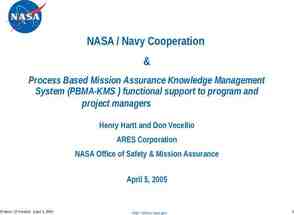Self-directed learning within Enterprise Education – how are
14 Slides782.60 KB

Self-directed learning within Enterprise Education – how are students leading their own learning? Sarah Preedy, Doctoral Teaching Assistant Dr Hilary Duckett, Director Plymouth Business School Futures Entrepreneurship Centre, Plymouth University

What is Self Directed Learning? “In its broadest meaning, ‘self-directed learning’ describes a process by which individuals take the initiative, with or without the assistance of others, in diagnosing their learning needs, formulating learning goals, identifying human and material resources for learning, choosing and implementing appropriate learning strategies, and evaluating learning outcomes.” (Knowles, 1975: 18)

Rationale for the study Interest in student centric pedagogies. Tutor as facilitator. Understanding the student perspective in enterprise education. What may enhance enterprise education?

Research Questions - What instances are there of enterprise education students self-directing their learning? - Why are they doing this? - What are the perceived benefits, learning or otherwise? - What might this mean for enterprise education?

Methodology - Interviews with 23 students, drawn across 8 UK universities, enrolled on enterprise education modules/programmes and/or extracurricular enterprise activities. - Interviews with three enterprise educators from two UK universities. Interpretative, contextual, reflexive.

Participant A Position Undergraduate Student, final year BSc Mechanical Design and Manufacturing Undergraduate Student, 2nd year BA 3D Design Undergraduate student, BSc Psychology Undergraduate, final year BSc Maritime Business and Law Gender Male Age 22 Male Male Male 19 24 21 Female 19 Male Male 20 19 H I Undergraduate, 1st year BSc Business Enterprise and Entrepreneurship Undergraduate, 2nd year BSc Business Studies Undergraduate, 1st year BMBS Bachelor of Medicine, Bachelor of Surgery Undergraduate, final year BSc Civil Engineering Undergraduate, final year BSc Civil and Coastal Engineering Male Female 33 22 J Undergraduate, BSc Entrepreneurial Management Male 26 K Undergraduate, BSc Management and Entrepreneurship Male 22 L Undergraduate, Final year BSc Economics and Finance Female 21 M N O P Undergraduate, 2nd year, BSc Computer Science Undergraduate, 2nd year, BSc Computer Science Postgraduate, MA International Law Undergraduate, 3rd year MPhys Physics with Astronomy Male Male Male Male 20 20 22 22 Q Undergraduate, Final year BA Philosophy and Economics Male 21 R S Undergraduate, final year BA Management Undergraduate, 2nd year BA Photography In the Arts Female Female 21 31 T Undergraduate, 2nd year BSc Mathematics Female 21 B C D E F G

S Undergraduate, 2nd year BA Photography In the Arts Female 31 T Female 21 U Undergraduate, 2nd year BSc Mathematics Alumni, BA Business Enterprise Male - V Alumni, BA Business Enterprise Male - W Alumni, Business (Team Entrepreneurship) Male 22 Staff Enterprise Educator Male Staff Senior Management Male Staff Enterprise Educator Female - - Mainly male undergraduates - Drawn from 10 UK universities - Range of courses, ages and levels of engagement in enterprise education both in and extra curricular

Why might students engage in SDL? “I’ve done entrepreneurship modules but I don’t really feel like you can learn much from them. It’s all this theory, what are the traits of an entrepreneur. how can you start a business. but I don’t think it necessarily teaches you. You have to put it into practice and learn from others. That’s why I sought out other activities and resources.” Excerpt from a female, 3rd year Business Management student studying enterprise electives, Russell group university “I think enterprise education needs to be dynamic, needs to take into consideration the learning process, the mindset of the students individually. As I have seen before with our own students they come in thinking ‘right I’m gonna(sic) start a business by my 3rd year’ and don’t realise that just because the degree is based around enterprise and entrepreneurship doesn’t mean we will do all the work for them, they obviously need to take what they have learnt in a classroom and apply it.” Excerpts from male Enterprise educator B, Alliance group university

Types of SDL activity? Books Online videos, websites and talks Online communities Student communities

What are the perceived benefits? “You learn to negotiate with businesses and investors. The main thing that I took from getting involved was better understanding people’s needs, being good at assessing what people need and how to help them progress. And also team management, such as encouraging people to take on more responsibility” Excerpt from male, 2nd year BA 3D Design student involved in extracurricular enterprise activities, post-1992 university “I joined the student apprentice competition that’s run by our student enterprise group. That was a month long process with tasks testing a variety of different skills, so the first one was selling cupcakes, second was marketing, third was making a viral video. I managed to get to the finals where we had to pitch a business idea and then after that I did this live job interview with 500 cash prize. Unfortunately I didn’t win, I came third but it was still a really good learning experience” Excerpt from female, 3rd year Business Management student studying enterprise electives, Russell group university “a safe place to discuss your failure or other people’s failures and to learn from them and speed up your progress” Excerpt from female, 3rd year, BSc Civil Engineering student involved in extracurricular enterprise activities, post 1992 university

“Networking is the main skill I have developed and I don’t think I would have developed it as well as I have if I hadn’t joined the society. I was going to networking events every week.” Excerpt from male, 2nd year MPhys Physics student involved in a student led enterprise group, Russell Group university “Being around like minded people takes you to the next step. You need ‘kingmakers’ in groups like this, people who help you grow or shape your future. Someone who is so different from you that it teaches you to think in a different way.” Excerpt from female, 3rd year, BSc Civil Engineering student involved in a student led enterprise group, post 1992 university. “I think student formed groups act as an enabler for developing enterprise skills. A way for students to actually get out there and explore opportunities they may use later down the line. They can put into practice the theory from lectures.” Excerpt from male Enterprise educator A, Alliance group university

What might this mean for enterprise education? A broader range of potential resources for enterprise educators to utilise. Reassessment of the balance between theoretical and practical opportunities in the curriculum. Consideration of Quality control of SDL activities.

Summary of findings SDL activities vary from one participant to another and are influenced by an individual’s specific context such as motivations to engage, availability of resources and networks. However, there were common activities across the majority of participants – online resources and student led groupings. Motivation to engage – Push factors included dissatisfaction with practical opportunities within curriculum, Pull factors included networking opportunities and sense of community. Benefits of engaging - perceived utility in enhancing interpersonal skills such as leadership, communication and networking. Experiential learning and learning from failure. There appears to be scope for students and enterprise educators to work more closely together in identifying SDL opportunities and how they may complement current curriculum provision.

Study limitations and further research Interpretative nature of concepts utilised – ‘learning’, ‘self-directed’, ‘enterprise’, ‘entrepreneurship’. Small sample size –not generalisable. A quantitative comparative study of non-engagers and engagers in SDL may provide data on the impact of SDL upon learning. Notable in the data was a male centric focus, both in terms of the participants’ genders but also in their examples of the resources and networks accessed. How might social, cultural and structural factors such as class, gender or ethnicity, enhance or limit an individual’s capacity to self-direct their learning?






